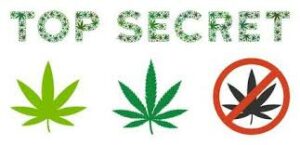 The doctor who should be governor.
The doctor who should be governor.
State Sen. Siobhan Dunnavant is a Republican from Henrico County. She is also a practicing physician. In this year’s General Assembly session she put forth SB1557 which expanded last year’s so-called “Let Doctor’s Decide” legislation (HB1251).
What’s new? The 2018 legislation (HB1251) authorized licensed medical providers to prescribe CBD and THC-A oil “to alleviate the symptoms of any diagnosed condition or disease determined by the practitioner to benefit from such use.” CBD, or cannabidiol, is a naturally occurring compound found in the resinous flower of marijuana plants. It is used to treat a variety of maladies. It is non-intoxicating. THCA, or tetrahydrocannabinolic acid, is the non-psychoactive acid form of THC found in marijuana plants when raw. It is also non-intoxicating unless it is heated. Once heated, THCA releases THC which is intoxicating. The 2018 legislation restricted THCA oil to contain no more than 5 mg of THC (the psychoactive component of marijuana).
How high is high? The restrictions in the 2018 legislation were pretty clearly intended to provide a means for health care providers to prescribe cannabis-based treatments without opening a “side door” to psychoactive use. The legislation allowed the prescription of THCA only in oil form and limited the concentration of THC to 5 mg per dose. This begs the question of how many milligrams of THC are required to achieve noticeable psychoactive results. This is a complex question that requires an understanding of the user’s weight, regularity of use and, perhaps most importantly, means of ingestion. Drinking unheated THCA isn’t psychoactive at all while dipping regular cigarettes into THCA oil and smoking the cigarettes would be intoxicating if there were a sufficient concentration of THC in the THCA oil. Let’s put that all aside for now and move onto the 2019 legislation.
A broader view. Dunnavant’s legislation increased the allowable potency per dose of medical cannabis and expanded the way the cannabis could be delivered. The legislation, as passed, increases the maximum strength to 10mg THC per dose and allows prescription via any ingestion means other than smokable marijuana. Capsules, sprays, lozenges and lollipops are all allowable under the newly passed legislation. Does the new legislation meet the presumed goal of allowing medical use of cannabis while preventing psychoactive use of prescribed marijuana products? THCA does not produce psychoactive effects … unless it’s heated to very high temperatures (such as smoking leaf marijuana). While nobody should doubt the ingenuity of a stoner wanting to get high, the ability to smoke a lollypop is doubtful. But what about the 10mg per dose oil (or tinctures for that matter)?
Let’s go to the dispensary. Ten states and the District of Columbia have legalized the adult use of small amounts of cannabis. Nine of those states have active marijuana retail operations. The legal cannabis products in those states are sold through licensed dispensaries. Those dispensaries have websites. One such dispensary is Native Roots of Aspen, CO. They sell a product called Tinctures by Sweet Mary Jane. The tincture comes in an eye-dropper style bottle with each bottle containing 90 mg of THC. Presumably, the common method of using these tinctures is to put a few drops in your mouth or your iced tea and wait for the buzz. Presumably, the tinctures that will be prescribed in Virginia will contain unactivated THC (i.e. THCA). Ingesting these tinctures won’t get you high. But what if you burn the tincture by dipping a cigarette into the tincture and then smoking the cigarette? Probably not a viable way to get high. Burning anything containing THC destroys about 80% of the THC. It goes “up in smoke.” Using a very broad rule of thumb you need to ingest 10 mg of THC to get high. Therefore, you’d need to consume 50mg of THC in a burning tincture to ingest 10mg of THC to get high. Those tincture bottles from Sweet Mary Jane contain 90mg of THC per bottle. You’d have to dunk enough cigarettes in the tincture to absorb more than half the bottle in order to get high. It seems that Virginia’s General Assembly has expanded our medical marijuana program in a way that minimizes the potential for misuse.
Oh so secret. Early versions of the 2019 house bill referred to the bill as part of a “medical marijuana program.” That terminology was stricken from the bill while leaving the rest of the bill intact. State regulators involved in the program also shun the “medical marijuana” terminology preferring “low-THC” instead. Why? Presumably, our legislators want to discourage Virginians from rushing to medical providers in order to obtain cannabis for its psychoactive properties. As described earlier in this post, that probably wouldn’t work anyway. They may also want to disguise this effort for fear of Virginia being seen as the 34th state to legalize medical marijuana. Historically, legalizing medical marijuana is a step on the path to legalizing recreational marijuana. Grow operations get established, dispensaries are started, etc. Patrons of both the 2018 and 2019 legislation are Republicans. They may not have been able to get Republican support if they called these two years of work what they really are – legalizing medical marijuana in Virginia.
Author’s note. Marijuana is illegal at the federal level and, outside of very narrow boundaries, illegal in Virginia too. Nobody should read anything I write as suggesting or encouraging the breaking of any laws. I also have no experience with medical marijuana, cannabis tinctures or dipping cigarettes into cannabis tinctures. My understanding of all this is based on what I read and may contain inadvertent factual inaccuracies. Anybody who believes they have found such factual inaccuracies is invited to suggest corrections in the comments section.
— Don Rippert

Leave a Reply
You must be logged in to post a comment.